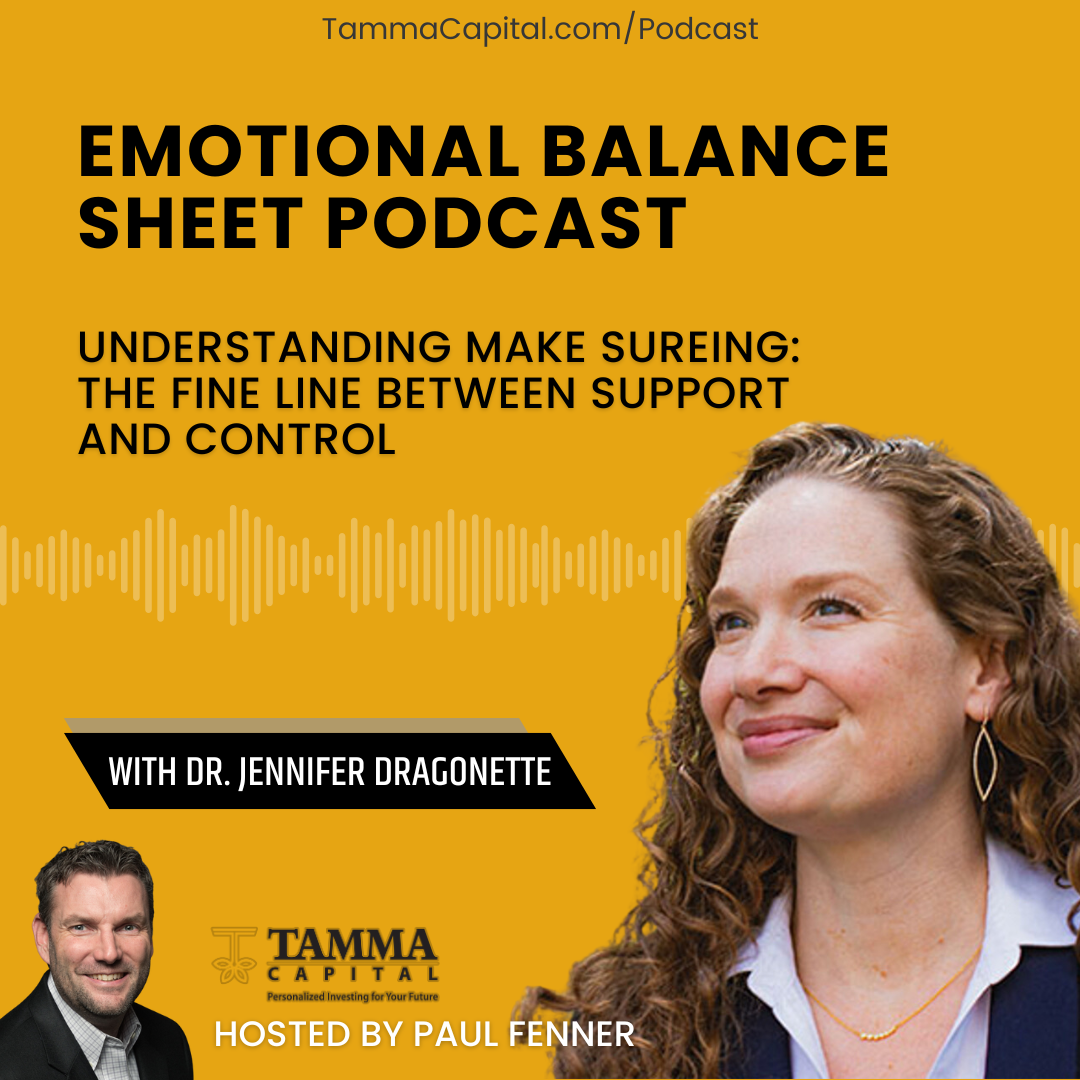Ep.178 – Dr. Jennifer Dragonette – Understanding Make Sureing: The Fine Line Between Support and Control
Have you ever heard of the term "make sureing?"
Today, we delve into a term coined by Dr. Jennifer Dragonette to describe our frantic attempts to control situations or emotions beyond our control. Though often well-intentioned, we explore how this behavior can lead to unintended consequences, especially within family dynamics and relationships.
Dr. Jen sheds light on the evolution of “make sureing” and its impact on those doing the make sureing and those being made sured. Dr. Jen explains how this behavior can inadvertently undermine the competence of others, leading to feelings of resentment and power struggles.
I share personal anecdotes about the balancing act of managing a large family, while Dr. Jen offers practical advice on how to shift from controlling behaviors to more supportive approaches. We also touch upon how these concepts apply beyond the family setting, especially in career transitions and times of emotional stress.
Please enjoy my conversation with Dr. Jennifer Dragonette.
Connect with Paul
Contact Paul here or schedule a time to meet with Paul here.
Follow Paul on LinkedIn, Instagram, and Facebook.
And feel free to email Paul at pfenner@tammacapital.com with any feedback, questions, or ideas for future guests and topics.
ADDITIONAL RESOURCES YOU MAY LIKE
1 Big Idea to Think About
One insightful takeaway from the show is that "make sureing" can unintentionally undermine people's competence and autonomy, which highlights the importance of respecting others' emotional experiences and allowing them to manage their own responsibilities and feelings.
1 Way You Can Apply This
To foster more competent decision-making and reduce frustration, practice deliberate non-interference or "sit on your hands" parenting. For example, if your teenager struggles to use a planner for school, allow them to experience the natural consequences rather than repeatedly reminding them, thereby promoting their independence and learning from their own mistakes. This method not only builds their responsibility but also helps you respect their individual growth, ultimately enhancing the dynamic within your family relationships.
1 Question to Ask
Am I trying to control or manage someone else's emotions or actions in my relationships, and how might this be impacting both of us?
Key Moments From the Show
00:00 Dr. Jen recounts the origin of “make sureing,” a term derived from a story involving her young sons, illustrating a common human behavior (00:44–02:23).
05:09 Paul relates “make sureing” to family dynamics, describing personal experiences where him and his wife, Theresa, struggle to balance reminders and independence within their large family (04:03-05:09).
06:12 Dr. Jen elaborates on the evolution of “make sureing” from early parenthood to adolescence, emphasizing the importance of adapting parenting strategies over time (06:12–07:14).
10:06 Discussion on the fine line between guiding children and allowing them to make their own mistakes, linking this to natural consequences and learning through experience (07:28-10:06).
12:43 Dr. Jen suggests replacing “but” with “and” when supporting loved ones through tough times, promoting the validation of their feelings alongside hope for the future (24:27–26:07).
14:52 Paul reflects on how his professional approach to client management contrasts with personal interactions, acknowledging his tendency to overdo “make sureing” with family (21:18–22:20).
15:30 Dr. Jen introduces the concept of codependency, explaining its impact on personal relationships and how it stems from similar “make sureing” behaviors (22:22–23:43).
19:06 Paul explores the challenges and emotional complexities of career transitions, applying the concept of “make sureing” in a professional context (13:27-15:22).
21:18 Dr. Jen highlights the importance of validating the emotional experience of others, stressing that it prevents them from having to defensively prove their feelings (26:35–28:55).
Resources Featured in This Episode:
Uncovering Core Values for Financial Clarity and Emotional Balance
Navigating the Emotional Tides of Parenting and Life Transitions
Harnessing Emotions as Information to Navigate Life's Challenges




